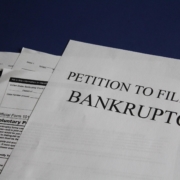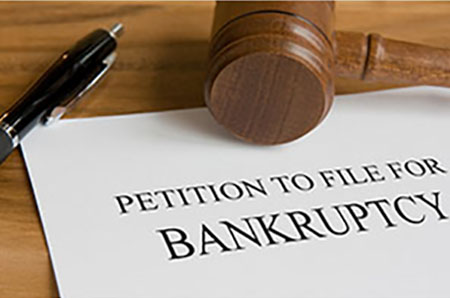Now that we are a couple of years past the closings and widespread quarantines of the COVID-19 pandemic, businesses across the country are starring down high loan payments to the federal government.
The Small Business Administration loans helped keep many businesses alive when their revenues disappeared overnight. Today, they have become albatrosses to many organizations.
Some of the loans, particularly the Paycheck Protection Program loans, were forgiven. But if you are tasked with paying back hundreds of thousands of dollars – sometimes millions of dollars – from the COVID loan programs, is there any relief coming?
It is too soon to tell, but the attorneys at The Orlando Law Group can look at your unique situation and determine what might be options for you, including declaring bankruptcy.
What loans have not been forgiven?
Many businesses with employees took PPP loans to cover employee expenses. In most cases, if those loans were used as they should and were used for payroll, the PPP loans have already been forgiven.
The other primary loans were Economic Injury Disaster Loans. These loans are a very standard tool used by the Small Business Administration over the years to help businesses recover from disasters.
In Florida, these loans are probably best known for helping businesses recover from hurricanes and floods. In those cases, the EIDL loans are very targeted and only available to the hardest-hit areas.
But during the COVID-19 pandemic, it was understood the economic damage caused by the pandemic was widespread and significant. Nearly any qualifying business was eligible throughout the United States.
By the time the program ended in 2022, more than four million EIDL loans were issued for a total of $387 billion. As of today, these loans are not forgiven and must be paid back over the next 30 years.
Help is not on its way right now.
During the fall, it looked like relief was coming for businesses when the Small Business Administration announced it would not be taking significant collection actions against small borrowers, those businesses with a loan less than $100,000.
Under that plan, the SBA would still reach out through phone calls and letters but would not expend the significant resources it estimated to collect on the smaller loans.
But right after Christmas, the Biden Administration announced it was reversing its decision because an inspector general and Congressional leaders said it would be against the law if it didn’t fully pursue collections.
As of today, if you default on your EIDL loan, it will be eventually referred to the Treasury Department, which can garnish income, file liens against the business and sue to collect any personal guarantees or other promised collateral.
It’s important not to get to that point and that’s where The Orlando Law Group can help you.
What Can I Do Today?
The best thing you can do is obviously try to continue making loan payments to the Small Business Administration, but we certainly understand if these loans have put you into a significant bind.
For now, an EIDL loan should be treated like just about any other debt.
For instance, we can work with you to provide an offer in compromise to the federal government to reduce your burden. Remember, however, the federal government will closely review your ability to pay the loan and may not approve an offer.
If not, it may be time to look at filing for bankruptcy protection. In many cases, but not all, EIDL loans can be discharged in bankruptcy proceedings, along with other debt, giving you a fresh start in 2024.
If you think either step might be a possibility for you, it’s important to start collecting any information about how the loan proceeds were spent.
With the amount of fraud that has happened with EIDL loans, the government is very particular in ensuring the proceeds were used for business and allowed expenses, like federal tax repayments.
The last thing you want to happen is to seek relief only to be charged with a criminal indictment because you accidentally spent the funds incorrectly!
How can we help?
Any time you may be seeking relief for debt through bankruptcy protection, it’s important to ensure you have legal counsel to help you throughout the process.
Plus, debt collectors and the federal government react differently to conversations with attorneys. They know attorneys understand the laws that protect businesses and individuals seeking relief and won’t try to trick an attorney like they often try to do with individuals.
The attorneys at The Orlando Law Group can work with you and your accountants to collect all the information we will need to best guide you and negotiate on your behalf.
With that information, we’ll work to find the best solution for your individual situation. Often, debt consolidation can be an answer or negotiating payoffs that are smaller than the debt could work.
If bankruptcy is an option, we’ll determine which bankruptcy type best fits your situation and will be with you every step along the way.
Just remember, if you are in serious debt, especially with an EIDL loan, there is a light at the end of the tunnel. We can help you get to a place where you can thrive and reset.
The attorneys at The Orlando Law Group can help businesses with EIDL loan issues and bankruptcy in Orlando, Waterford Lakes, Altamonte Springs, Winter Garden, Lake Nona, St. Cloud, Kissimmee, and throughout Central Florida.
If you have questions about anything discussed in this article or other legal matters, give our office a call at 407-512-4394 or fill out our online contact form to schedule a consultation to discuss your case. We have an office conveniently located at 12301 Lake Underhill Rd, Suite 213, Orlando, FL 32828, as well as offices in Seminole, Osceola and West Orange counties to assist you.
The articles on this blog are for informative purposes only and are no substitute for legal advice or an attorney-client relationship. If you are seeking legal advice, please contact our law firm directly.










 There are various reasons which prevent people from being able to make their student loan payments. As of 2019, Americans collectively owe over $1.56 Trillion in student loan debt. This is spread out by nearly 45 million individuals who are paying back their student loans.
There are various reasons which prevent people from being able to make their student loan payments. As of 2019, Americans collectively owe over $1.56 Trillion in student loan debt. This is spread out by nearly 45 million individuals who are paying back their student loans. 









